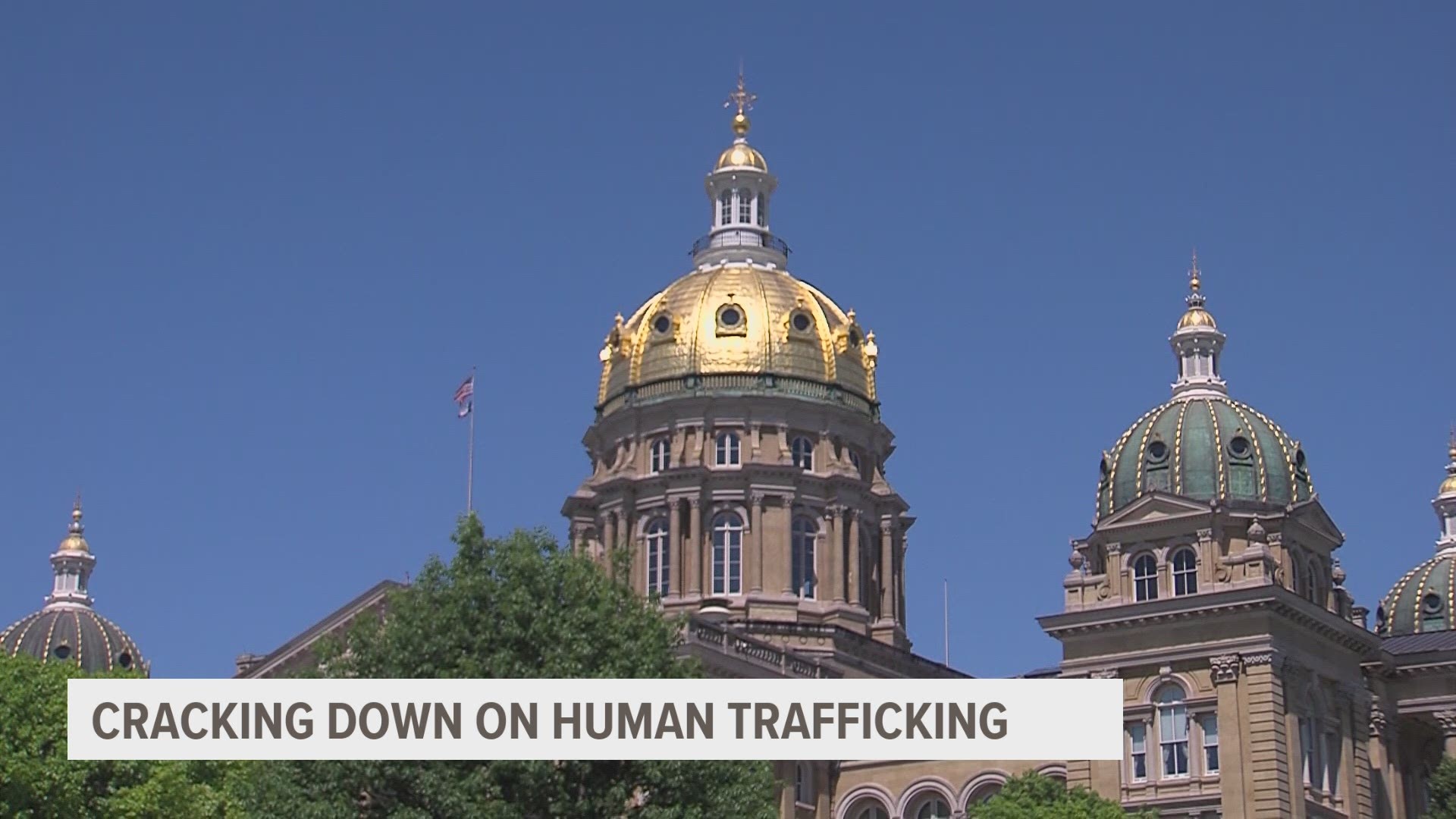DES MOINES, Iowa — Iowa lawmakers have passed a bill cracking down on human trafficking.
House File 452, which is now awaiting the signature of Gov. Kim Reynolds, would give law enforcement more tools to investigate and prosecute human trafficking at massage parlors and cosmetology businesses.
According to a report from the Iowa Attorney General's Office, there were at least 100 confirmed sex trafficking cases in 2015 and more than 50 confirmed labor trafficking cases.
The report says these numbers are likely lower than the true number of trafficking cases.
Hidden in plain sight
Terri Roberts, who owns Terri's Frame Shop in Urbandale, said a couple of years ago, she realized something off at a business next door.
The business was advertised as a massage parlor.
"We just started seeing strange things going on," Roberts said. "I have four daughters and I was like, no, this can't be happening next door to my shop."
Roberts called the police after realizing there was possibly human trafficking going on there.
"We'd see clothes hanging in the back on trees — lingerie," Roberts said. "We were like, 'What's going on?' We realized there were people living in there — girls living in there. There were times that I saw a young gal leave with an older guy, come back the next morning with a suitcase and the next day I saw her leave again."
Within a few weeks of her report, Roberts said police shuttered the business.
The Urbandale Police Department told Local 5 employees at the massage parlor were cited with prostitution and operating without proper massage therapy licenses, but not human trafficking.
Still, Roberts said it was shocking to know something like that happened so close to her business.
"The things I could hear through the wall, it was like no," Roberts said.
Watch: Break the Cycle 200 expands its mission and event
Some cities already require all employees to have licenses
Urbandale has a city ordinance in place that requires licenses for anyone giving massages to be licensed through the state.
"Unfortunately, there are businesses that advertise they provide massage therapy and/or therapeutic services, but actually engage in various illegal activities, which may include prostitution and/or human trafficking," the ordinance reads.
Several cities around Iowa have similar ordinances, but not all municipalities do.
HF 452 would change that.
"We think of this as a problem around the world or in another state that's maybe a border state, but it's happening right here in our own back yard," Break the Cycle 200 Founder Rocky Vest said.
Break the Cycle 200 is a non-profit dedicated to ending modern-day slavery.
Vest, and others in the community, advocated for the human trafficking bill, which got unanimous support in both the House and Senate.
"Absolutely, it needs to be passed," Roberts said. "We need to protect our kids; protect our children. We can't be blind to all this."
According to the U.S. Department of Health and Human Services, human trafficking generates $32 billion a year worldwide.
It's tied as the second-largest criminal industry in the world.
There are a lot of myths about human trafficking.
First, many think human trafficking is only sex trafficking.
In reality, 68% of all global trafficking is forced labor, 22% includes sexual exploitation and 10% is state-imposed forced labor.
Second, many believe human trafficking victims will tell someone they're trafficked.
HHS reports 50% of known victims had contact with health care professionals, but none admitted to being a victim.
Third, many think human trafficking only happens to women, but that's not true.
HHS reports that since 2012, 18% of the victims stemming from cases from the national hotline were men.

